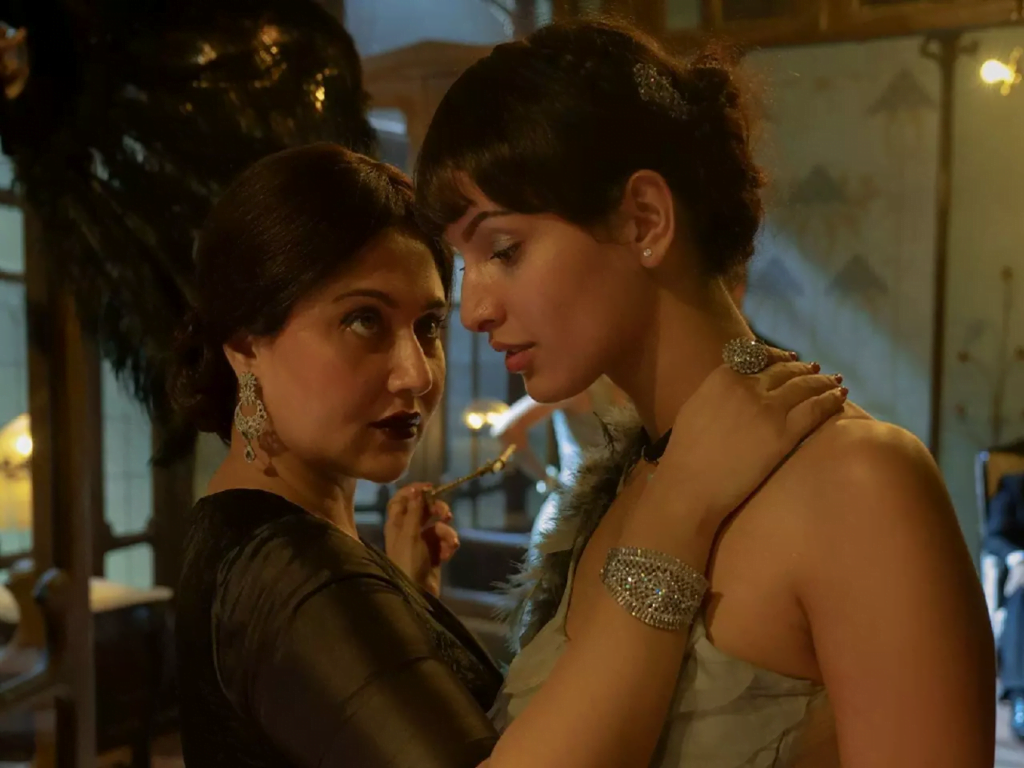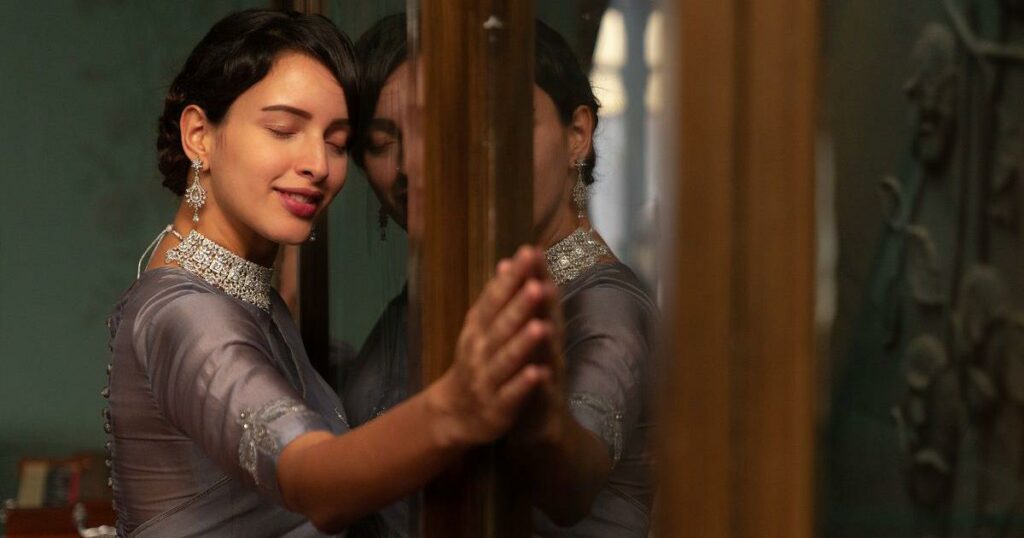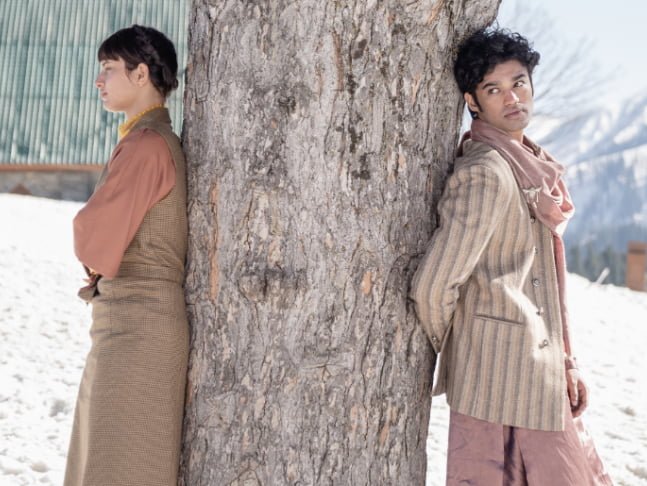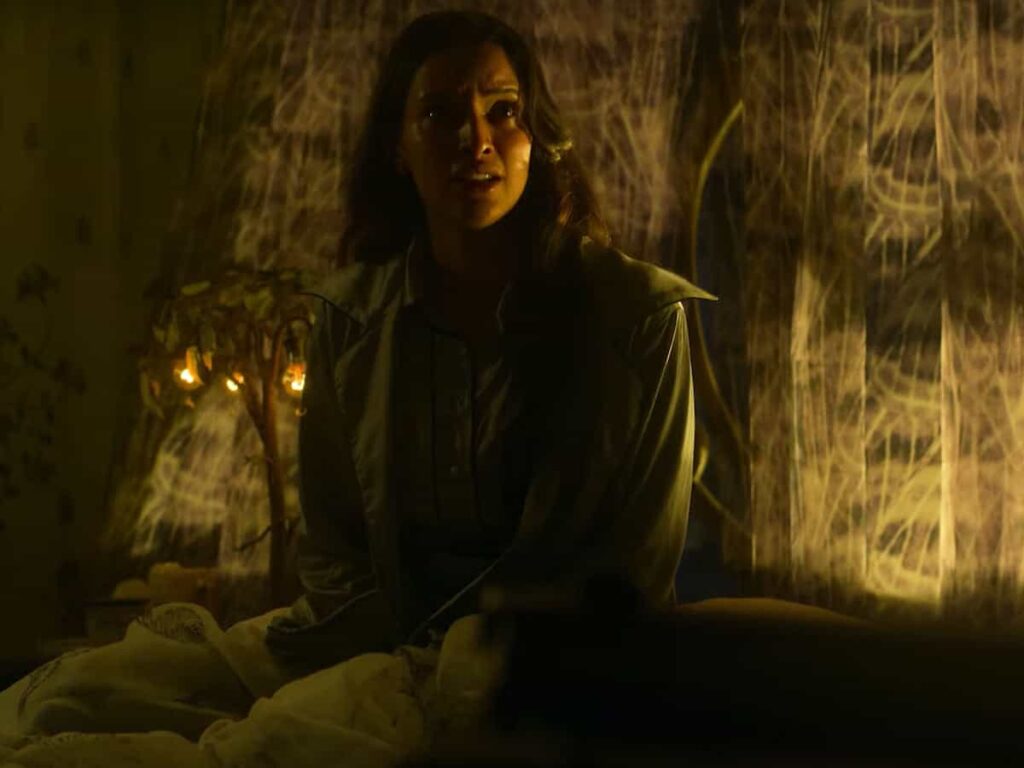Spoiler alert: This article contains plot points and spoilers
The new Netflix film, Qala, released on 1st December 2022 starring, Tripti Dimri, Swastika Banerjee and debutant Babil Khan has left the audience in awe. The film follows the journey of a female singer while facing the authority and power of men in the industry. Tripti Dimri leading the movie gives a very sad yet captivating picture of 40s and 50s India while facing the harsh truth of the industry.
As a child, Qala played by Tripti Dimri is ill-treated by her mother. The trauma builds as she grows up and the unequal treatment is visible. Her mother constantly reminds her that she is a woman and she cannot have the prestigious title of Pandit. Her mother when she adopts a boy named Jagan (Babil Khan), who is an orphan plays a very significant role to showcase the importance of daughters in a household. The film depicts the male authority over art and how people show great importance to men over women.
The void Qala feels for not having the support of her mother is how the film describes childhood trauma and the effects of bad parenting. Qala represents the hunger to feel accepted for her gender, and for her art and not be victimised by the patriarchal hold in the industry. Her trauma and guilt comes back again and again even after achieving what she desires.
The narration of the story follows different episodes of how Qala had to pay the price for just wanting to achieve her dreams. One of the scenes, when she sees her mother having a sexual encounter with the producer to get Jagan into the industry, paints a very sad picture of art and talent being subjected to only men’s desires. Mentally, Qala makes up her mind on how to get successful or get a chance in the industry. When Qala goes to Kolkata for her first recording, she pleads for the last chance. It comes with a price of dignity. Qala is forced to have an intimate relationship in order to get ahead with her career and that leaves her with guilt and hatred with her own self.
Also Read: Monica, O My Darling: Where Is Monica & Other Female Characters?

But it is her guilt to see Jagan dying by suicide that doesn’t leave her mind. She keeps visualising, having guilt even after achieving what her mother wants for her.
When Qala becomes a big star in the industry, she fights for equal pay. In one of the scenes, she tells her manager to ask for more money than the male singers even with the difference of one rupee. Qala is haunted by her guilt but she wants to break the chain of sexism that her mother failed to do. She keeps a female manager because of her own safety. In the interview for her award, she asks a female reporter to come forward and take her picture. It shows a sense of empathy and understanding among women in the film.

Qala’s cry for help is inevitable in the film. When the doctor comes and checks up on her, she clearly mentions she has some mental issues. But the doctor disregards her symptoms by mentioning “overthinking” and “hormones” because of her periods. Time and again we see, women are tapped with “menstruation” mood swings whenever they react to anything, emotionally. This represents the sexism and patriarchal approach that runs within the healthcare system.
Also Read: Diving Into Ammu And Jaya: Two Protagonists From South Indian Cinema
The film gets darker when Qala falls into trap of her trauma and starts living in a parallel world while talking to Jagan and confronting him. One of the most pertinent and strong themes in the film is the portrayal of mental health and trauma as not only psychological but physical as well. The scene when she visualizes snow in a recording room while seeing Jagan’s body hanging on the tree is indeed a very heart-wrenching scene to go through. She finally has a breakdown.

The film also tells us the gloomy picture of how patriarchy has been the reason for women facing abuse, trauma, and other mental health problems. It gives a narrative of patriarchy destroying women not just physically, but mentally as well. At the end of the film, when Qala dies by suicide, her mother cries for help. But little does she know, it wasn’t Qala losing her long battle, it was women losing their battle to break the chain of misogyny.

Qala’s journey with her mind and her past is a visually difficult journey. The importance of psychological visuals the film showcases holds a very significant message on women’s mental health while battling patriarchy.
Qala is not a film but a message to vocalise the discrimination that goes through with art being gendered. It is a message that enunciates patriarchy as a physical and mental assault. Qala is a voice for women in the industry facing gender discrimination.




